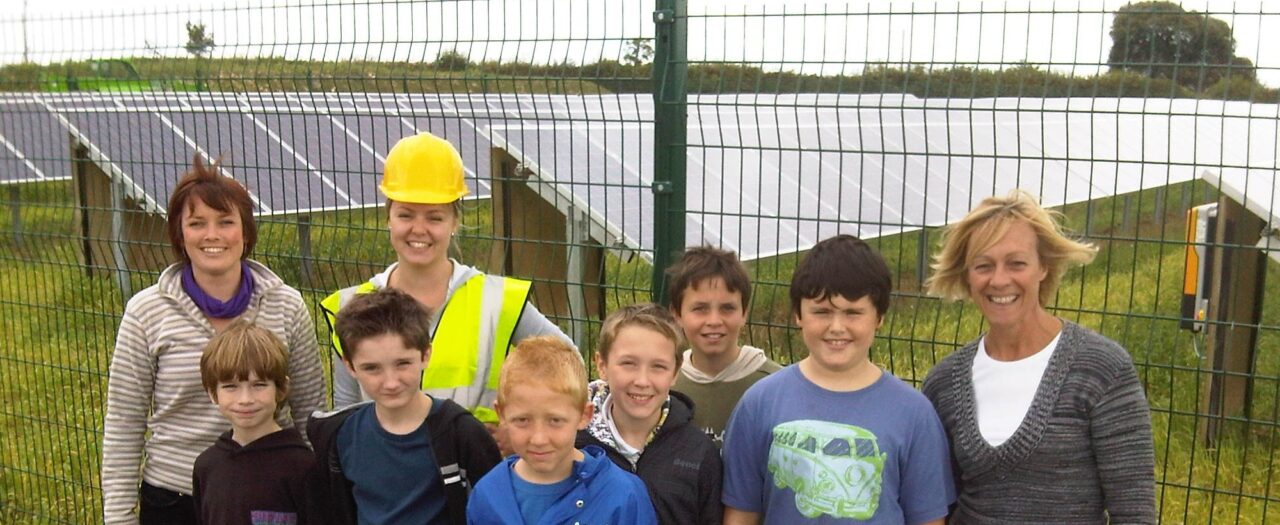
Shadow energy secretary Barry Gardiner has pledged to stimulate and support the UK’s decentralised energy sector during a major speech on the energy market this morning.
Speaking at the ongoing Labour Party Conference in Liverpool in the wake of Jeremy Corbyn’s landslide leadership victory, Gardiner looked to expand on Corbyn’s energy manifesto which included, amongst other pledges, an ambitious renewable electricity target of 65% by 2030.
While Gardiner’s central pledge was to ban fracking within the UK, he has also outlined plans to support a national migration to a more decentralised energy system with significant focus on community energy programmes.
Dubbed ‘Repowering Britain’, the programme would see community energy companies handed a so-called “right to supply” the electricity they generate to local residents.
“We need to localise the way energy is produced and stored. I want people earning from the energy they produce on their rooftop solar or their community wind turbines, not just consuming what the Big Six sell. We need to create smart networks and local grids to make energy work to pay people rather than people working to pay their energy bills,” Gardiner said.
"Need smart networks & local grids to make energy work to pay ppl, rather than ppl working to pay their energy bills." @BarryGardiner #Lab16
— Labour Energy Forum (@labour_energy) September 26, 2016
The programme bears a striking resemblance to the ‘Repower Balcombe’, championed by solar-focused charity 10:10, which sought to replace a shale gas rig proposed for the area with various community-backed renewables schemes.
The scheme looked set to result in the construction of a 5MW solar farm until drastic subsidy cuts significantly impacted its financial viability.
Community energy programmes have been some of the hardest hit by the government’s reset of support frameworks for renewables, particularly the feed-in tariff and exclusion from EIS, SEIS and other tax relief schemes.
Earlier this month Co-operatives UK warned that the number of new community energy companies established had fallen by more than 80% in the wake of the cuts, with just ten new initiatives registered between the start of the year and 6 September 2016.
Other initiatives unveiled by Gardiner include £90 million in funding to help homes at risk of fuel poverty afford efficiency upgrades, distributed in regional area contracts to local installers, and free insulation for up to 18,000 homes owned by armed forces veterans.
Hannah Martin, energy campaigner at Greenpeace UK, said it was “encouraging” to see that politicians had begun to note that the “energy industry is undergoing some changes”.
“With opposition to fracking at an all-time high across the country, this ban on an unproven and inexperienced industry will be widely welcomed. But the really forward-looking part of this announcement is the democratisation of energy. Support for community energy schemes can empower the people of Britain to take back control from the stranglehold of the Big Six, and choose cleaner and increasingly cheaper energy than the fracked gas and nuclear reactors being pushed by the government.”
However trade union GMB was markedly less supportive, claiming any decision against fracking would not be good for security of supply.
“Given we will need gas to heat our homes and power industry, the question is therefore where are we going to get our gas from. We are increasingly going to be dependent on regimes fronted by henchmen, hangmen and headchoppers for the gas we need. That isn't ethical and is surely an abdication of our environmental and moral responsibilities,” said Gary Smith, Scotland secretary at GMB.

